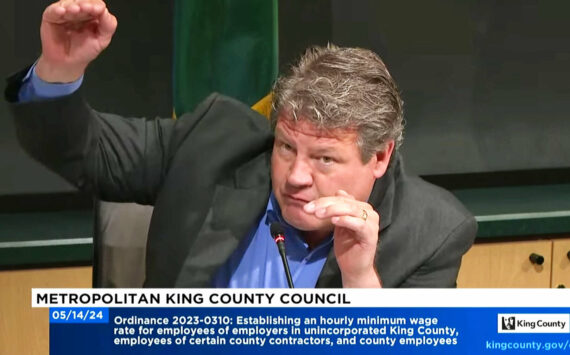OH, THE SUFFERING, the human tragedy.” Ken Griffey wants out. It makes me almost throw up to say it,” observes a KJR talk jock. It’s the “greatest disaster in Seattle sports,” notes a Times sportswriter. The loss of the best major league player in a city whose baseball past mostly rivals Harold Stassen for losing has some fans dripping tears into their Starbucks and others looking for loopholes. After all, Junior is still a Mariner and says he’ll show up for M’s spring training next year if the right trade isn’t made.
But listen to your analyst: The multimillionaire superstar is gone, fabulously wealthy costar Alex Rodriguez is likely to soon follow, and it’s only a business. Furthermore, the way for sports fans to deal with it is, naturally, to find someone to launch spittle at—starting with hero-turned-ingrate Griffey, Incorporated. He’s the powerful, petulant Kid who was once paid baseball’s $68,000 a year minimum and now, thanks to 398 home runs and the faithful millions who cheered him on, has earned $45 million in Seattle salary, another $15 million in endorsements over 11 years (he gets $1 million for promoting Wheaties four hours a year), and membership in the Screen Actors Guild. Seattle made him well-off enough that he could pass up a $140 million eight-year M’s offer, knowing he’ll get even more with an even better team likely closer to his $3 million home outside Orlando. He hit 48 out of the park this season. He also bitched about getting “no respect” from fans in Seattle and once carped “The one thing that makes me want to leave here is people getting down on me for not running out grounders.” Say it loud: the bum!
Then there are those billionaire scrooges, the Nintendo Mariners. Look up mismanagement in the dictionary and there’s a picture of the M’s front office. They collectively soured fans and taxpayers alike, finagling a $517 million stadium through a backroom deal while frittering away one after another beloved franchise player. In gratitude for fan support, they’re raising ticket prices $1 to $4 next year. All together: They’re bums, too!
Feel better? Thing is, Griffey’s disingenuous departure—he moves to Florida and then complains that here he never sees his family—comes as no real surprise: He predicted today’s scenario in 1994 when, after trades left him pouting, he bought his Orlando property and noted his father’s team, Cincinnati, holds spring training in nearby Plant City. “See where this is going?” he said then.
Today, Junior and the Mariners are sorry but prosperous; fans are just sorry. There’s talk that, should Griffey become Atlanta’s modern-day Henry Aaron and the Mariners’ in return get the pitching, lead-off, and left field talent they need, an enticing new Safeco team may form. Eventually, we’ll forgive Griffey, Inc. for thinking of himself. But here’s a mindful caveat for starry-eyed baseball fans: “A man ought to get all he can earn. A man who knows he’s making money for other people ought to get some of the profit he brings in. Don’t make any difference if it’s baseball or a bank or a vaudeville show.” Who was that grubby capitalist thinker? Just an icon named Babe Ruth.








